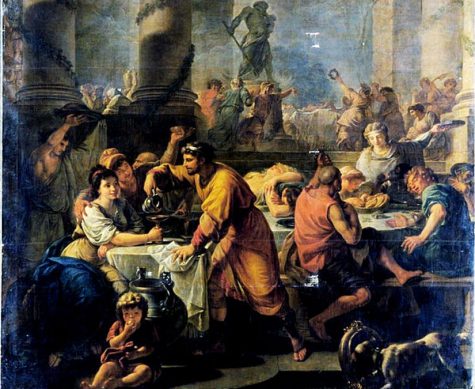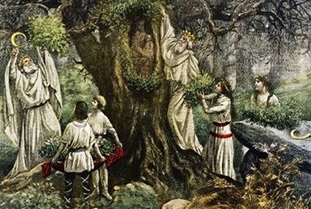Have Americans Forgotten the True Meaning Behind Christmas?
Learn about the history of Christmas and how it has changed the way many perceive it today
The widely accepted idea is that Christmas is a holiday designated for friends, family, and most importantly, appreciation for the life we are given. Christmas is a time for benevolence and appreciation towards our loved ones. As the holiday was celebrated throughout the years, its traditions have evolved including the creation of Santa, the symbolic role of the Christmas tree, and perhaps most controversial of all, the custom of exchanging presents. In recent years, it has been debated that Americans seem to have forgotten the elemental message underneath the commercialized holiday and have instead directed their attention only towards the exchange of gifts. This shift that embodies the materialistic side of Christmas has incited a sense of greed and inauthenticity within individuals, tarnishing the once pure holiday. Take a look at the evolution of Christmas and how it plays a part in the controversy today.
The History of Christmas
The Christmas traditions we know now are in fact a blend of a variety of past cultural customs:
Festival of Saturnalia: Gift Exchange
The Romans celebrated the Festival of Saturnalia in honor of their god Saturn, beginning on the 13th of December and lasting until the 17th of each year. One of the customs during the festival was the giving of gifts to one another, which is where the idea of our modern gift exchange during Christmas is derived from. The evergreen wreath also comes from the Saturnalia festival, in which Romans decorated their homes with boughs of freshly cut branches and brush.
 The Druids of England: Mistletoe and Christmas Tree
The Druids of England: Mistletoe and Christmas Tree
The Druids, a group of people living in Wales and England in the 18th century, used to gather sacred mistletoe for their ceremonies and decorate their homes with it. It is believed that the first Christmas tree was instituted by Boniface, an English missionary to Germany in the 8th century, who supposedly replaced sacrifices to the god with a fir tree adorned in tribute to Christ.
The Netherlands: Saint Nicholas aka “Santa Claus”
“Santa Claus” is a fictional character inspired by St. Nicholas, a bishop in Asia Minor during the 4th known for his extraordinary generosity. St. Nicholas was later said to give presents at the end of year. It was then that St. Nicholas was adopted by the Netherlands as the patron saint of children.
The Solution
It is easy to see why many have forgotten the original meaning of Christmas. The holiday has rapidly become one of the most commercialized of all time. Think about the time you went shopping for Christmas before Thanksgiving or even worse, right after the previous Christmas where all the holiday decorations go on sale. It is for this reason that the celebration has become so widespread, and as learned from before, when traditions or culture are spread, their features and unique aspects also undergo a significant change. The traditions in which Christmas is extracted from are simplistic and virtuous on their own, thus it is unnecessary to reform modern holiday customs associated with Christmas. However, if wanting to obtain a wholesome experience from the holiday, individuals must seek to embrace the event in a holistic manner, taking into consideration the ancient traditions which have synthesized into modern Christmas as well as the infidel meanings behind each one.
According to sophomore Siona Arora, “Christmas is a time of giving back and showing appreciation to those around you, which is why we exchange presents, to show our love and gratitude. However, it is also important that we do not forget the background of these customs and the context in which they were established. I think this way will make for a much better holiday experience for everyone.”


Hello! My name is Amy Dai and this is my first year on the Oakton Outlook. As a writer, I hope to be able to expand my knowledge by learning about student's...




